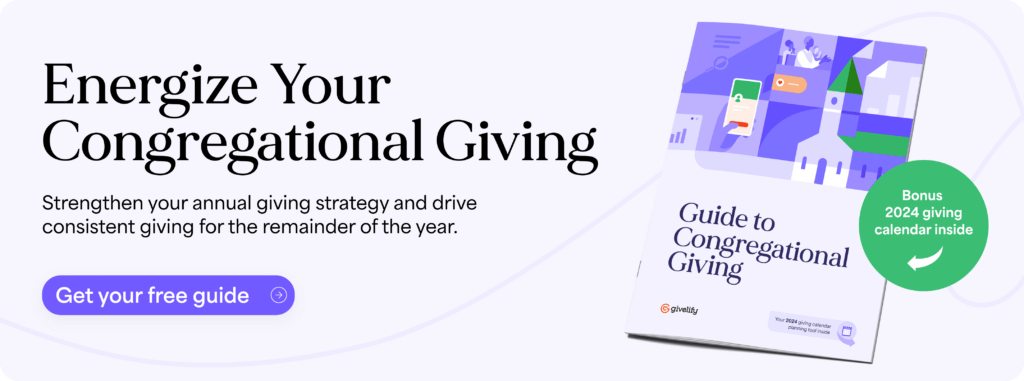3 Ways to Expand Your Ministry Through Community Outreach

Community outreach programs are an essential part of the ministry of every church. And as we continue to emerge from our nearly three years of quarantining and social distancing, outreach services are even more critical.
Thankfully, as the church, we have found new and exciting ways to do outreach activities while supporting organizations that have done great work. I thought more about this after my recent Ministry Pivot conversation with my friend Marcus Bullock.
Bullock is the founder and CEO of FlikShop, a tech company that serves the incarcerated, as well as those who are in the process of coming home.
FlikShop allows anyone to send photos delivered as postcards to any person in prison instantly — impacting more than 200,000 families of those incarcerated.
Several churches have partnered with Marcus and his team to reach even more families. Still, there is more work to be done. As a church, we can and should have ways to do different types of outreach programs to impact our communities.
What is the definition of outreach?
Places of worship desperately need to be connected to the community outside of their buildings — both to reach people who don’t attend church and to be more available to current members who can’t physically make it to services.
The other reason churches need to connect is that their members are connected to the community. Aligning with causes your members are passionate about provides opportunities to engage members and foster a deeper relationship.
Here are three examples of community outreach.
Food outreach
Food outreach is one of the most popular outreach methods in many churches. As a longtime youth ministry leader, I have done “brown bag” lunches to support food outreach programs. My church would purchase lunch meat, bread, drinks, and fruit. Our young students would decorate the brown paper bags before we filled them with the lunches.
Students and families (because families serving together is essential) would then personally distribute the food to those in need. Our church has also developed a full-scale feeding program in seven locations. Through our Kingdom Cares Ministry, we regularly feed more than 1,000 neighbors in need.
We have developed a separate community development corporation to partner with others and receive grant funding for more community outreach programs.
If there is food insecurity in your community, your church can also partner with and learn from my friend Dr. Heber Brown III’s Black Church Food Security Network, for example. The Network helps churches and communities to create a food ecosystem that supports healthy food options in urban and inner-city areas.
Youth development and empowerment
Most churches are near area schools or youth centers such as the YMCA or Boys and Girls Clubs. Outreach services could include your church partnering with or sponsoring a local school.
Planning events for the students or supporting one of the sports programs for the school, like football, baseball, soccer, or other teams, is a great way to make an impact.
You can also support the teachers with lunch or other supportive acts to show that you care. These can be as simple as a “thank you” card for each teacher with a gift card tucked inside.
The definition of community outreach in this example is for your church to be seen as a base of support for the school, the students, and their families. At certain times of the year, such as back-to-school, consider partnering with schools to provide backpacks filled with school supplies for students who can’t afford them.
Host an Angel Tree or “school party” during the holidays with gifts and support for families experiencing hard times. As a church, your membership and support of your local school or organization can be invaluable to those in your community.
Church and organization mentorship
Life.Church is an excellent outreach program example of church and organization mentorship. Pastor Craig Groeschel and his team have a great spirit of giving back and outreach to other pastors and leaders. They have developed a network of free resources for churches and leaders called the Open Network.
Now most of us may not be in the position of Pastor Craig and his church to provide such an extensive outreach program. However, we can mentor and partner with churches and leaders in our communities to help them grow and move forward.
What if we decided to help or offer what we do well to the churches in our community and our network? How much better could that church and pastor be? What could they do after our help and mentorship that they couldn’t do before?
My pastor, Rev. Matthew L. Watley, the founder and Senior Pastor of Kingdom Fellowship in Calverton, Maryland, recently launched the Kingdom Network Leadership Summit to assist pastors and their teams grow. We are better together in ministry.
Simple ways to do outreach this year
As a show of support, I always use the hashtag #SameTeam on the social posts of friends and even those I don’t know well in ministry. I do this to celebrate their excellent work. I even send them suggestions that might help because I know we are on the same team in Christ.
When one of us wins, all of us succeed. The same is true with losing. Helping is the definition of outreach. What church or pastor do you know in your community or online that you can help?
Maybe the pastor is thinking of launching a new ministry. Offer to meet with the pastor over lunch monthly and listen for ways to help. Perhaps the church is looking to hire a youth minister. You can send your youth minister to talk to their team about infrastructure as they continue their search.
As a faith leader, what kind of outreach do you have planned for this year?
View the Ministry Pivot conversation with Marcus Bullock.




